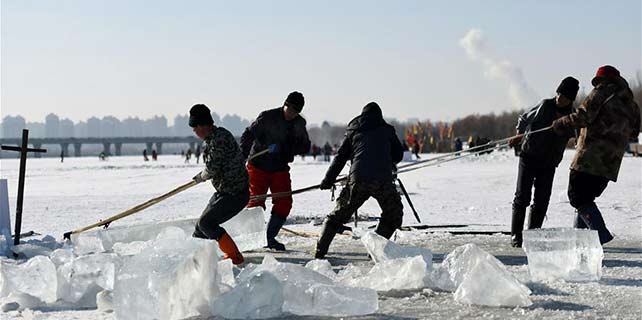Tensions triggered over possible move
US warned of 'consequences' if Israel policy is reversed
A possible move by the United States to recognize Jerusalem as the Israeli capital this week ignited regional debates over the impact the decision would have on peace efforts in the Middle East.
US President Donald Trump's adviser and son-in-law Jared Kushner said on Sunday the president hasn't yet decided whether to make the move or if he will follow through with his plan to transfer the US embassy in Israel from Tel Aviv to Jerusalem.
"He's still looking at a lot of different facts," Kushner said.
Kushner's remarks came after US media reported last week that Trump could announce a decision on Wednesday to recognize Jerusalem as Israel's capital, reversing the decades-old US stance that the city's status should be decided in negotiations between concerned parties.
The status of Jerusalem is one of the key questions for the Palestinian-Israeli peace process, which has been stalled since April 2014 following nine months of US-sponsored talks that ended without major progress.
The status of the city is not settled as the Palestinians want to make East Jerusalem, occupied by Israel since 1967, the capital of their future independent state, while Israel declared the city its capital, a claim not recognized by the international community.
In 1995, former US president Bill Clinton signed a law requiring the US embassy in Israel to be relocated from Tel Aviv to Jerusalem unless the president issues a waiver every six months, which has been done by every president since.
This week marks a turning point for Trump, who last signed the waiver in June. He vowed during his presidential campaign last year to move the embassy.
However, it is now expected that he may postpone the implementation of his promise.
The Palestinian Foreign Ministry on Sunday called for urgent meetings of the Arab League and the Organization of Islamic Cooperation to discuss the Jerusalem issue.
On the same day, the AL warned against "hazardous consequences" if the US recognizes Jerusalem as the capital of Israel.
Saeed Abu-Ali, AL assistant secretary-general for the occupied Palestinian and Arab lands, said that such US recognition would give Israel the green light to continue its breaches of international resolutions, and he urged Washington to act as an "impartial broker" of the peace process.
On Twitter, Jordan's Foreign Minister Ayman Safadi said he had spoken with US Secretary of State Rex Tillerson on the potentially dangerous consequences of Trump's move.
"Such a decision would trigger anger across Arab Muslim worlds, fuel tension & jeopardize peace efforts," he wrote.
Over the past several days, Palestinian President Mahmoud Abbas has sought support from Arab and Western leaders on the issue.
The possibility of a US acknowledgment is a "ticking bomb" which will destroy the peace process in the Middle East, analysts said.
Mohammed Daraghmeh, a Ramallah-based writer and political analyst, pointed out that such a decision represented a historic reversal in the US position on the Arab-Israeli conflict.
He said that such a decision was very dangerous, as it "imposes a pre-emptive stance on one of the most important ultimate questions of the Palestinian-Israeli conflict and the Arab-Israeli conflict".
(China Daily 12/05/2017 page10)


















